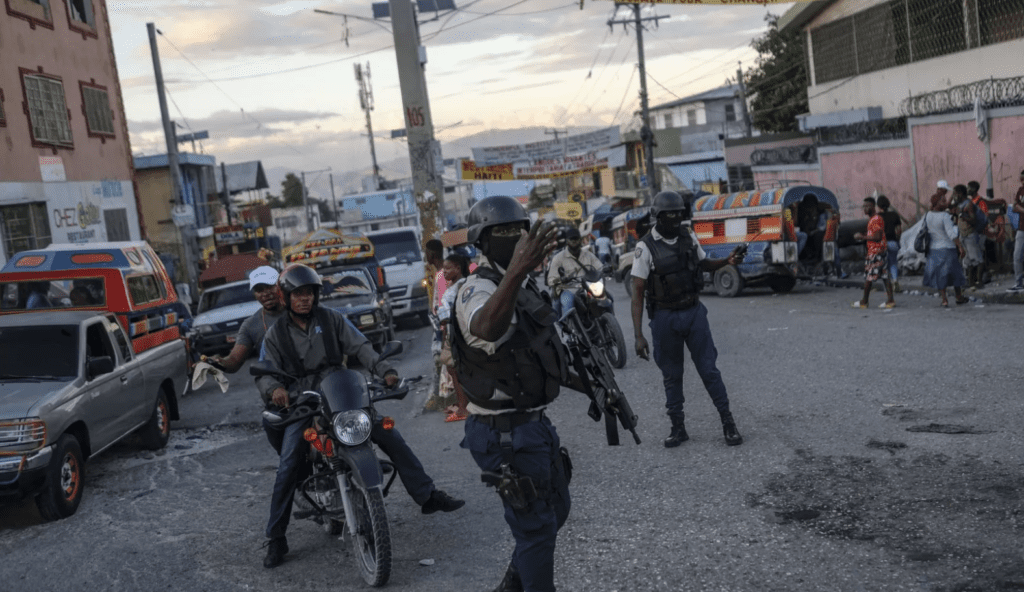Residents of Petionville, a relatively affluent area, were left reeling after witnessing one of the deadliest days in the ongoing security crisis in Haiti.
“More than a dozen bullet-ridden bodies lay in the street – the victims of the latest gang rampage,” recounts a witness.
In a bold display of defiance, the home of a judge was also targeted, sending a chilling message to the country’s ruling class.
This violence unfolds even in what was considered the safer parts of the city.
UNICEF’s Catherine Russell described the situation as “horrific,” drawing parallels with the lawlessness depicted in the film “Mad Max.”
Such events serve as stark reminders that Haiti teeters on the brink of anarchy rather than stability.
The closure of numerous hospitals in the capital city has left around 3,000 pregnant women vulnerable, lacking access to essential maternity care.
At Cap Haitien’s public hospital, the struggles are palpable.
Dr. Mardoche Clervil, the hospital’s obstetrician, explained the challenges faced due to gang control over the roads, hindering the supply of vital resources.
Louisemanie’s story is a tragic testament to these challenges.
Despite suffering from treatable conditions, she lost her baby due to complications exacerbated by the turmoil.
The humanitarian crisis across Haiti is dire, with millions struggling to access basic necessities like food, water, and shelter.
Farah Oxima, among the hundreds of thousands internally displaced, expresses the sentiment of many: “I don’t know what to do, I’m watching the country collapse.”
In the face of such despair, the notion of a transitional council bringing order seems futile to many.
“Only God can change this place,” laments Farah, echoing the sentiment of countless Haitians who see no other source of hope amidst the chaos.
Trump’s lawyers Say He Couldn’t Get A $464 Million Bond In New York Fraud Case
